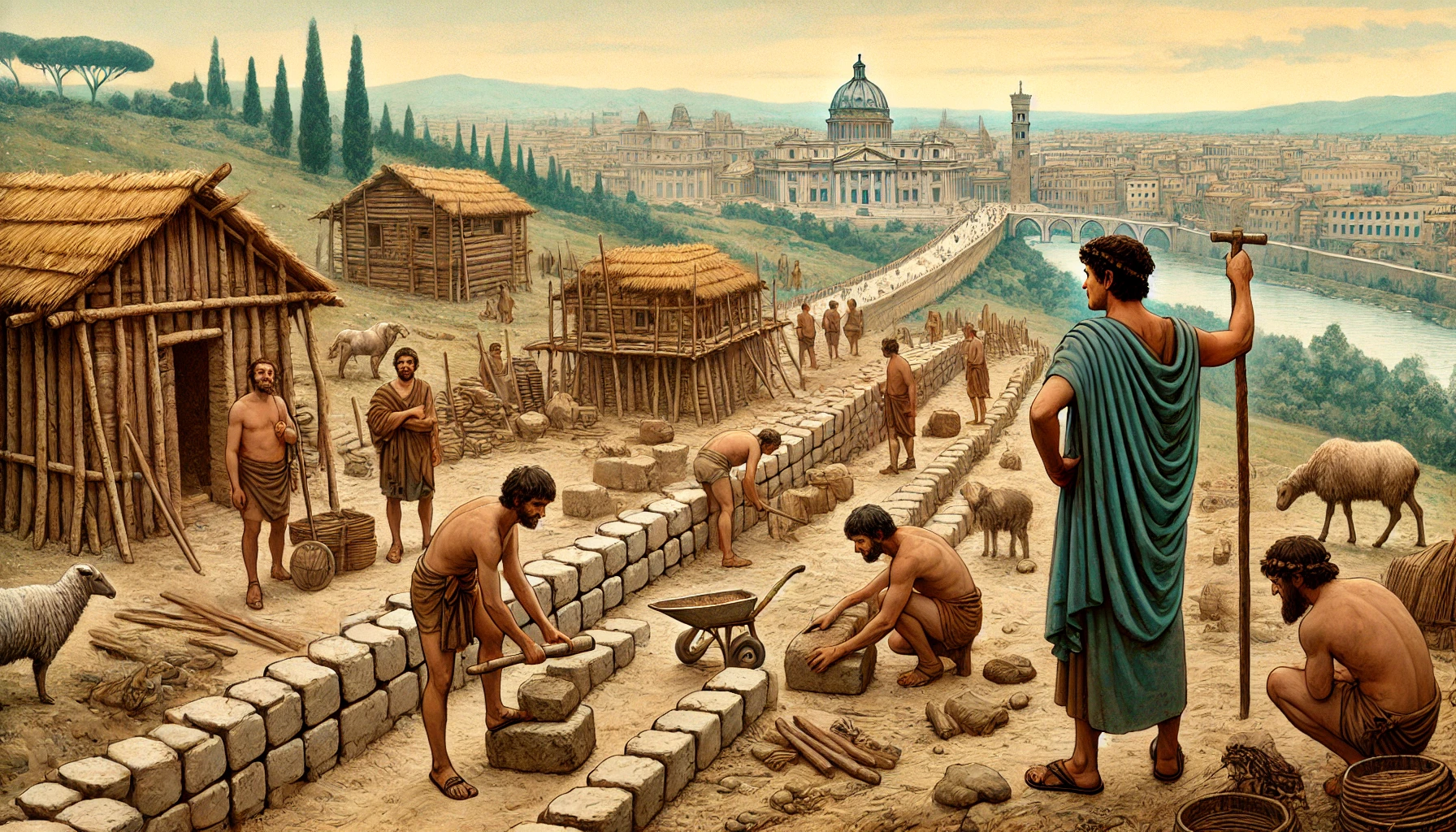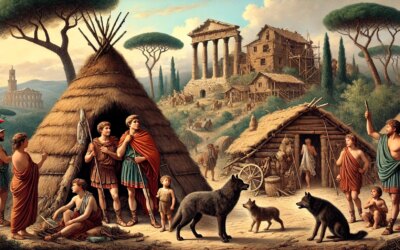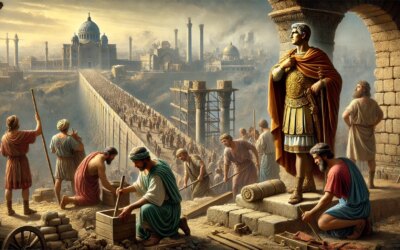The Birth of an Empire Begins with a Myth
According to legend, the foundation of Rome took place on April 21, 753 BCE, when Romulus, its first king, established a settlement on the Palatine Hill. This moment, shrouded in both mythology and early history, marked the beginning of what would become one of the greatest civilizations in history.
Romulus and Remus: The Twin Founders
The story of Rome’s founding begins with two brothers—Romulus and Remus—descendants of Aeneas, the Trojan hero. Abandoned as infants and raised by a she-wolf, they grew up to challenge the corrupt rule of their great-uncle, ultimately deciding to establish a city of their own. However, a dispute arose over where the city should be built. Romulus favored the Palatine Hill, while Remus preferred the Aventine.
The Walls of Rome and the Fate of Remus
To settle the dispute, Romulus began constructing a wall around his chosen site. In an act of defiance, Remus mocked the fortifications and, according to legend, leaped over them. This act of disrespect enraged Romulus, who struck down his brother, declaring that no one would challenge the defenses of his city. With this, Romulus cemented his position as Rome’s sole founder and first king.
The Early Settlement and Its Growth
Rome’s early days were marked by modest wooden huts, defensive walls, and a growing population of shepherds, farmers, and outcasts from neighboring territories. To ensure the city’s survival, Romulus implemented strategic policies, including the famous “Rape of the Sabine Women,” in which he orchestrated the abduction of women from neighboring tribes to secure wives for his followers.
The Rise of Rome’s First Institutions
Under Romulus, Rome developed its first political and military structures. He established the Senate, composed of 100 noblemen known as patres, laying the foundation for Rome’s later republican government. He also organized the army, creating the first legions that would eventually conquer much of the known world.
Myth or Reality?
While much of Rome’s foundation story is legendary, archaeological evidence suggests that settlements existed on the Palatine Hill as early as the 8th century BCE. Traces of early fortifications, huts, and burial sites indicate that a small but growing community formed the nucleus of what would become Rome.
A City That Would Shape History
The foundation of Rome was more than just a myth—it was the beginning of an empire that would shape the world for centuries. Whether Romulus was a historical figure or a symbolic representation of Rome’s origins, his legacy endures in the city’s identity. Today, April 21 is still celebrated in Rome as the Natale di Roma, honoring the legendary birth of the Eternal City.






